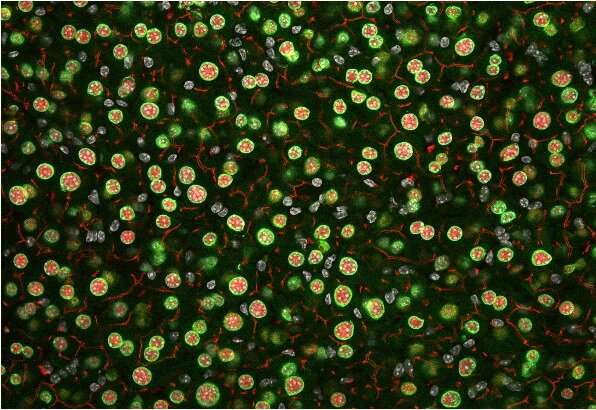An important step towards fasting-based therapies

Previous studies have shown how fasting can influence the immune system to improve different chronic inflammatory conditions, but little is known about how immune responses might determine a healthy metabolism. Since the liver is a central hub and regulator of metabolism, a group of researchers focused on understanding how liver cells and immune cells found in the liver communicate with each other in conditions of fasting. The study was a joint effort of Helmholtz Munich, Ulm University, the Technical University of Munich (TUM), the German Center for Diabetes Research (DZD), the Heidelberg University Hospital, and the University of Southern Denmark.
The researchers scanned the DNA of liver cells andimmune cells, examining which parts of their DNA were active and which messenger-molecules were being released as a result. Their findings showed that these cells were communicating with one-another and highlighted the role of a molecule that is expressed in almost all the cells in our bodies, namely theglucocorticoid receptor. "We discovered that in the immune cells, this receptor in particular allowed the crosstalk between the cell types during fasting. By deleting the receptor only in the immune cells, we saw a breakdown of fasting signals in theliver cells. This means that the immune cells are able to directly influence the effect of fasting on our metabolism," says Anne Loft from Helmholtz Munich.
Giorgio Caratti and Jan Tuckermann from the Ulm University add that "in fact, this is the first time we have seen this process under 'healthy' conditions. We knew that immune responses could influence our metabolism in an unhealthy setting, but this was new. It proves that a low level of immune activity, or inflammation, is necessary for a balanced metabolic response to fasting."
"Voluntary fasting has been shown to be beneficial for the prevention of a number of human metabolic diseases, including type 2 diabetes and obesity. The increase in people suffering from not only these metabolic diseases is staggering, showing no signs of slowing down. Our findings serve to understand the molecular mechanisms behind these diseases and may ultimately lead to the development of effective fasting-based therapies," says Stephan Herzig who led study at Helmholtz Munich.
The research was published inCell Metabolism.





















